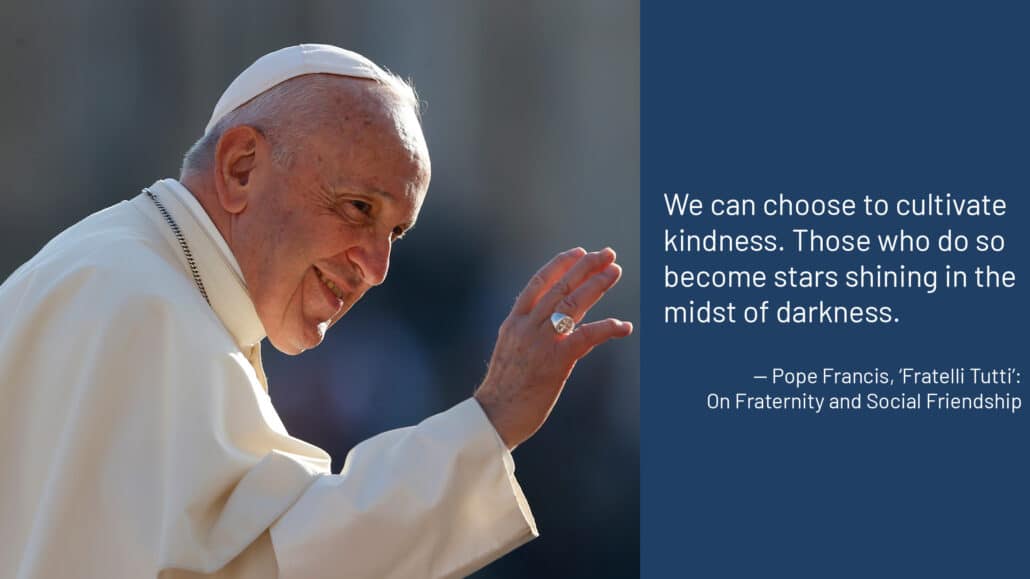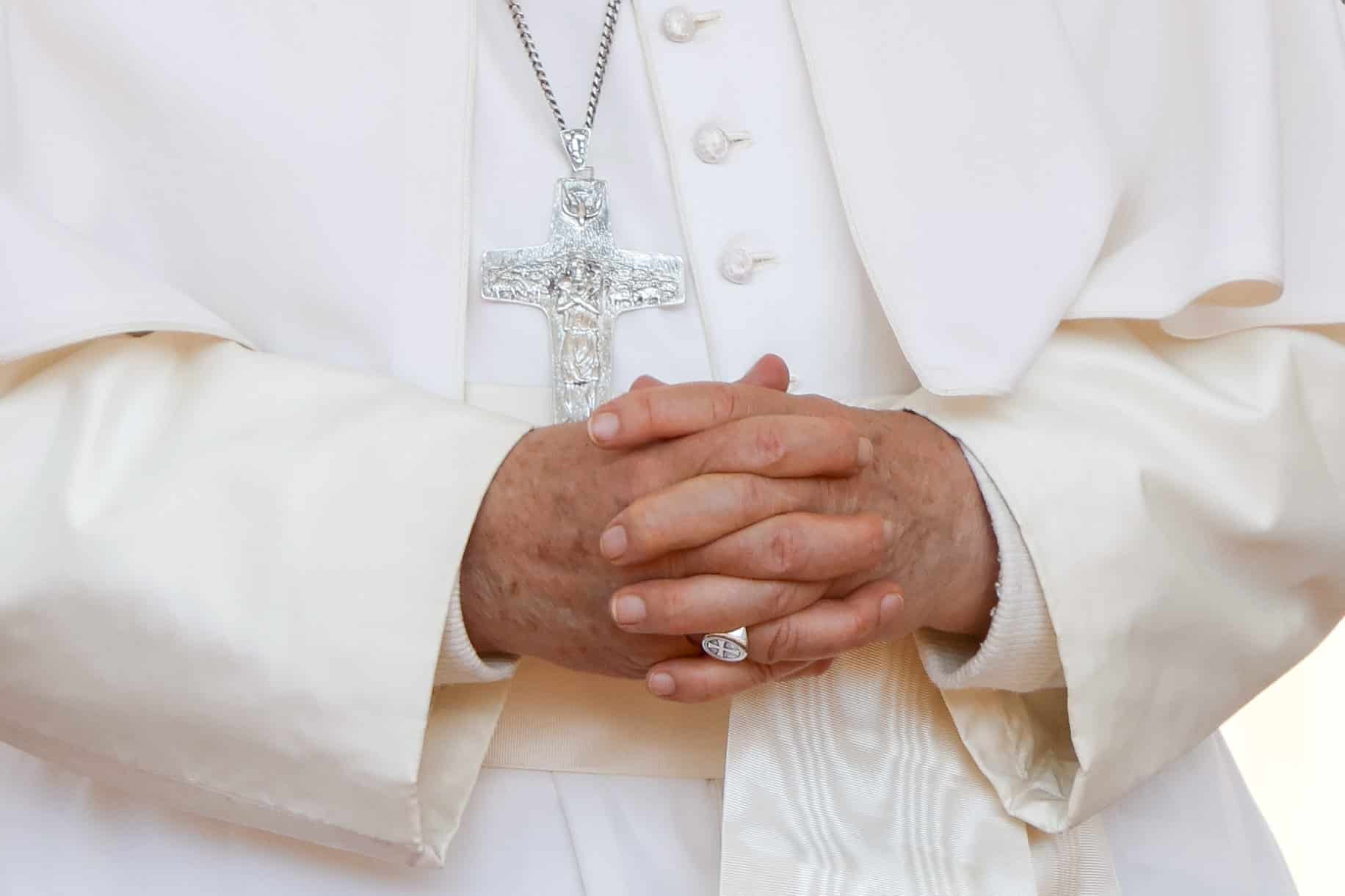We are each unique, yet we have so much in common. We all come at things differently, yet we find common ground in sharing our experiences and profiting from each other. My particular style is holistic; I need the initial overall experience first so I can comprehend the pieces in a meaningful way. This is how I come at everything from a visit to a museum, to the spatial relationship of the furniture in the room from the vision and ideas of a group, to the layout of a book. In writing a section for the “Fratelli Tutti” study guide, I had to read the whole encyclical first—all in a few days. I underlined and blocked out words, phrases, sentences, and sections. What was my general “take-away?” How did this fast, comprehensive read make me feel? I was looking for the generality. Three words stood out for me.
The word solidarity signaled a recurring theme: a union or fellowship arising from common responsibilities. Our Holy Father challenged us to walk in solidarity with each other all the way from global survival to concern for literally the person next-door, from the immigrant to the impoverished, from the middle-class worker to the incarcerated, setting all economic, racial, and social differences aside to recognize our commonality and our interdependence. We’re all in this together!
Another word that stuck with me was compassion: the willingness to feel another’s pain. If one of us hurts, the effect of that hurt will eventually impact others of us. Throughout the encyclical, Pope Francis asks us to recognize needs, deprivations, and unjust social systems, and to “suffer with” or feel the pain of those who are victims of such systems. This awareness calls us to act for justice.
Finally, I was impressed by how many times throughout the encyclical Pope Francis asked us to make human dignity the criteria for our decisions. Concern for the common good and the dignity of the individual must be the basis of a new and intentional “culture of encounter.”
Empty individualism will only drive us farther apart, pit groups against each other, and make unity impossible. Respect for the dignity of the other will lead to dialogue and commonality, new paths of hope.
Chapter Three was my primary focus in providing material for the study guide, a chapter that expressed the importance of love. But love shows itself best when it is built on solidarity, compassion, and the promotion of human dignity. The reality that it is all about love. “The greatest danger lies in failing to love” (chapter 3, par. 92).
The teacher in me encourages me to conclude with a suggestion to help our readers internalize the messages in “Fratelli Tutti.” Too often we forget what we read on our own, but to process the material aloud with others, with our fratelli, expands our insights, builds bonds of friendship and dialogue, and engages more of our senses to help us internalize what we read.
“Fratelli Tutti” lends itself nicely to a small group coming together regularly for discussion and sharing. And there should be no hurry to finish the book! Meeting over Zoom or conference calling during this time of pandemic can have positive consequences in many directions, building community and interaction in times of isolation. Happy reading!
Thank you, Pope Francis, for reminding us that we are fratelli tutti!







